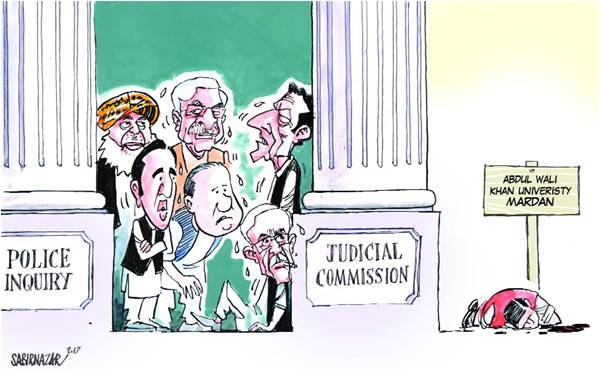
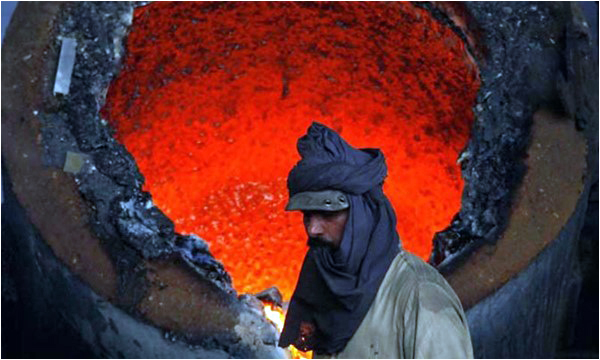
Iron ore reserves
Sir,
God has gifted Pakistan with many resources. It has deposits of several minerals including coal, copper, gold, chromite, mineral salt, bauxite. The discovery of iron ore reserves on 11 February, 2015 near district Chiniot, around 160 kilometers northwest of Lahore proved a landmark in the development and progress of Pakistan. Initial estimates put them at 500 million tons of iron ore, a primary ingredient in steelmaking. Exploration of iron ore reserves in Chiniot-Rajua Sadaat has entered its second phase.
Luckily, the iron ore extracted from mines in Chiniot is 60 to 65 percent high grade, as testing has indicated from Swiss and Canadian laboratories. Lower-grade sources of iron ore generally require beneficiation, using techniques like crushing, milling, gravity or heavy media separation, screening to improve the concentration of the ore and remove impurities.
Mansoor Ahmed,
Faisalabad.
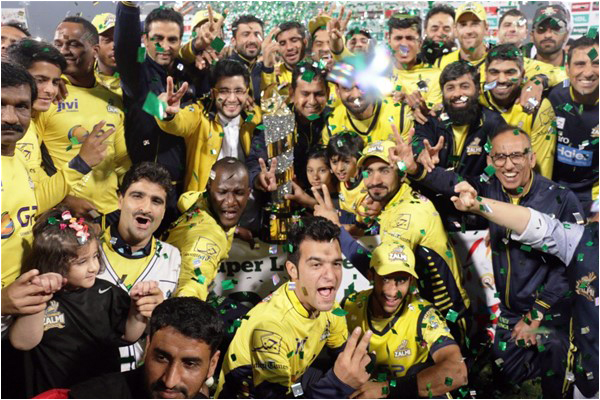
PSL 3
Sir,
In a tweet, Najam Sethi announced that they would pick a new team for the next edition of the PSL which means that six teams could take part in PSL 3. The next team may be Kashmir as it was expected to be part of PSL 2. With a rise in the number of teams, the number of matches is expected to increase to 34. But the good news is that eight matches will be played in Pakistan.
In PSL 2, Pakistan saw the final match at Lahore’s Gaddafi Stadium between Quetta and Peshawar. By including one more team, PSL 3 can be bigger and more commercial. The most important thing is that with this progress, international cricket can be brought back once again. The PCB is working on this agenda. The PSL is the biggest source for this as the PSL 2 final was held in Lahore and many foreign players came, which was a good sign. The next year eight matches will be played in Pakistan and if international cricketers agree to come then we will be back on track.
Sana Samad,
Turbat.
Schools of Swat
Sir,
It is disheartening to mention that the condition of Swat’s schools are bad and their students are suffering. The schools lack basic facilities with some not even having roofs or toilets. The students suffer a lot when it rains. And then, when it is hot, it is too scorching to study. They hope that the government will do something about it.
Eisiyaan Baloch,
Turbat.
Mashal Khan
Sir,
What could be worse than condoning the abetment of a crime without any due process of justice and lynching a man and justifying it in the name of a religion that abhorred savagery? We are reaping the harvest of the seeds of hypocrisy sown by a visionless military dictator Zia, who exploited Islam, compromised our sovereignty and was blinded by greed and lust to prolong his illegitimate rule. He promoted extremism and fanaticism, which has led to the deaths of innocent Muslim men, women and children, whilst members of his junta went from rags to riches. Our universities have deteriorated into breeding grounds of intolerance and fanaticism, instead of becoming places to impart knowledge in Science, Technology, and the Arts.
Merely saying you are a Muslim is not enough. This is demonstrated in our interaction and obligations to our fellow human beings. Islam emphasizes the protection of non-Muslims. Walk into any court in Pakistan and you will come across Muslims giving false testimony to deprive orphans and widows of their lands or rights, or accusing somebody of committing a murder, or giving false testimony to help a rapist, or submitting falsified tax documents etc.
Ali Malik,
Lahore.
Phenomenal women
Sir,
There are instances in Pakistan where women have truly made a mark for themselves and have reached the highest point in their careers. One such woman to join these ranks is Sima Kamil.
A seasoned banker by profession, Kamil, currently deputy CEO at the country’s third-largest lender, United Bank Limited (UBL), has been appointed by the bank’s board of directors as the head or CEO. She will take charge on June 1, 2017. This makes her the first-ever woman to head a major commercial bank in Pakistan.
Yet another woman who have broken through barriers are Shazia Syed, who was appointed CEO of the Dutch-British multinational Unilever Pakistan last year. Other exceptional women of note (and this is not an exhaustive list) are Jehan Ara, the the mastermind behind PASHA (Pakistan Software Houses Associations), Roshaneh Zafar is the managing director of “Kashf foundation”, Salman Jafri, the founder and CEO of WordPL.net. And of course, one must mention Sharmeen Obaid-Chinoy, Malala Yousufzai, Mukhtaran Mai, Sherry Rehman, Razia Bhatti.
Fazal Elahi,
Islamabad.
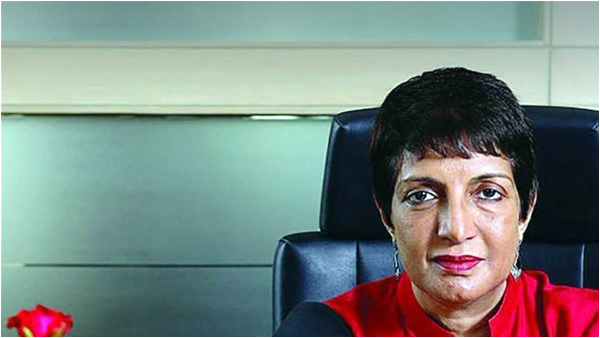
Careers
Sir,
I know of many young men and women who do their FSc exams and are not clear about what career they should choose. They are not aware of the full range of options the world has to offer. I have also seen students at premier A’ Level schools who are backed up with incredible support from career counsellors. I wonder why the other stream cannot also provide this kind of support?
Not all children want to become doctors or lawyers or engineers. There is still great stigma attached to the arts and social sciences because it is not always clear what kind of gainful employment these lines of academics will offer.
Of course, there are many examples now of brilliant young minds doing cutting-edge work in Pakistan and abroad. But I still feel that our institutions are not necessarily guiding them on career options. Parents should know what lies ahead before time and money is invested in programmes that last two years at a minimum.
One good thing I have noticed is that certain establishments hold education fairs. What about vocational training? Or non-academic work?
I hope that institutions that deal in these areas use websites to spread information. We also need employment bureaus as they do abroad to help people who are unemployed. Perhaps there could be a database where people could search for jobs and learn of ways to learn new skills?
I am contacted almost every month by a jobless person hoping for sifarish and I wish I could help every single one of them. Can anyone with this information please write back?
Akbar Siyal,
Karachi.
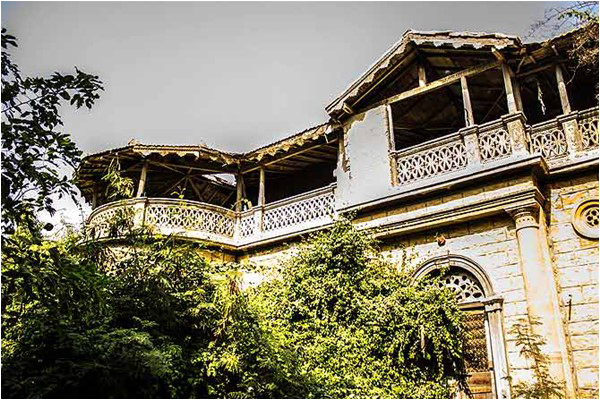
Land Mafia
Sir,
Apropos the demolition of an 80-year-old school located in Karachi’s Garden East. In 1931, the Jufelhurst School was established by Sybil D’Abreo on one acre of land in what was then known as Cincinnatus town, a Christian neighbourhood. A few weeks ago the land mafia moved in and demolished a bungalow on the premises that used to be the principal’s residence. It is a shameful and despicable act which only serves to illustrate the extent this cancer has penetrated our society.
What purpose does the Commissioner, deputy commissioner, provincial government, building control authority, police etc serve? Are we going to be fooled into accepting that this was done by a few men and that the authorities were unaware of it? After all the bulldozer machines must have come from somewhere. Was everybody sleeping and could this be the work of an SHO or an Inspector alone?
The unfortunate reality is that the land mafia has become more powerful than the state itself in Karachi especially. Schools and buildings declared as heritage sites are being demolished. Instead of building more schools, we are demolishing those that exist. Billions siphoned off by the powerful land mafia seem to have blinded the existing state machinery and elected public office holders from discharging their constitutional duties for which they are paid salaries.
We are all aware that a plot of land allocated for the construction of a school in Sukkur was occupied by a powerful MNA who built his house on it. After an initial hue and cry, the matter was swept under the carpet. The palatial house still exists and political parties continue to say they will promote education. The reality is, however, entirely different. What can be even worse than the fact that even the house belonging to Quaid-e-Azam Mohammad Ali Jinnah located in Lahore cantonment, which was acquired from him in 1944 under the Defense of India Rules has not been returned to his rightful heirs?
Malik Tariq,
Lahore.
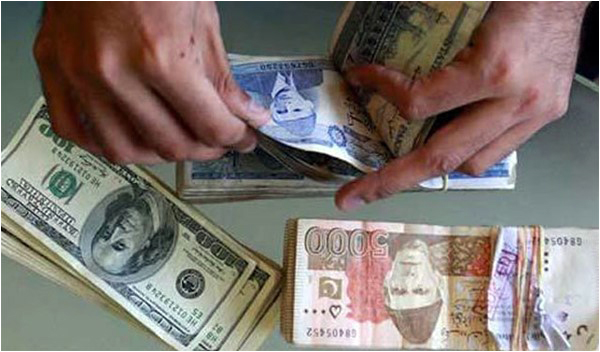
Forex rates
Sir,
There is a 2% to 3% difference between the open market and interbank forex exchange rates these days. For example, the exchange rate of a Sterling Pound was Rs132 in the open market whereas it was Rs128 in the interbank market on March 12, 2017.
The open market rate of the Sterling Pound is normally around Rs4 or 3% higher than the interbank rate. The difference is a lot for an expatriate who is converting his or her hard-earned money for the purpose of investment in Pakistan.
I was recently given to understand by the helpline of the Federal Board of Revenue that if you convert your foreign exchange into Pakistani rupees at the open market rate and invest the converted amount in real estate or in any other asset, the certificate for the exchange transaction issued by open market dealers (i.e. exchange companies) will not be acceptable as a genuine source of investment by the Federal Board of Revenue under section 111/4 of the Income Tax Act. But if you convert your foreign exchange into Pakistani rupees in the interbank market and invest the converted amount in real estate or in any other asset, the conversion certificate issued by the scheduled bank will be accepted by the Federal Board of Revenue as a genuine source of funds of investment in Pakistan. This appears to be discriminatory and unjustified.
When it is perfectly legal under the Economic Reforms Act 1992 for a forex account holder to convert his or her foreign exchange in the open market which gives a better rate of exchange, then why are converted funds and investments not acceptable as genuine sources of investment under the income tax law?
There clearly appears be a contradiction between the two laws. It is natural human behavior to go for a better economical rate if the same commodity is available at two shops. The Pakistani rupee is the same commodity whether a buyer goes to the interbank market or to the open market. Why must then an expatriate lose 2% to 3% by going to the interbank market so that the income tax authorities accept the converted rupees as a genuine source of investment?
Ejaz Ahmad Magoon (FCA),
Lahore.
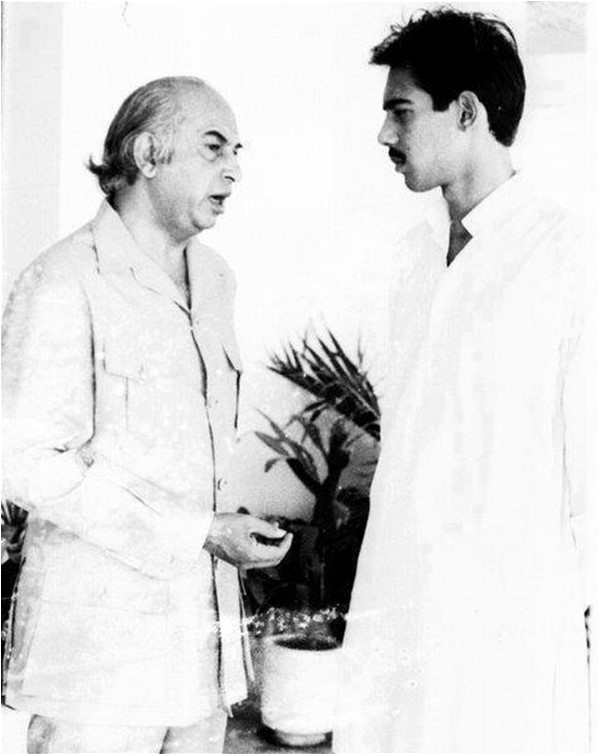
Remembering ZAB
Sir,
The man who was “born great” was not acceptable to those on whom “greatness was thrust upon” and he was subjected to “judicial murder” in 1979 on this day April 4, in the darkness of night. Zulfikar Ali Bhutto rose to power from the deserts of Sindh, and after resigning from the cabinet of Ayub Khan as foreign minister, formed his own political party by the name of Pakistan People’s Party. His charismatic personality won the hearts of millions of his countrymen and women and won the majority vote in the 1970 general elections in the western wing of the country at the time.
After the creation of Bangladesh, he became the president and chief martial law administrator on December 20, 1971, with the aim to “Pick up the pieces, very small pieces”. He was the most popular leader, but his government was toppled on July 5, 1977, by the then army chief General Zia ul Haq, and finally on September 3, 1977, ZAB was arrested on charges of ordering to murder Nawab Muhammad Khan, father of his political opponent Ahmed Raza Kasuri on November 11, 1974.
The man who gave the country a unanimously agreed upon constitution was kept in a “stinking death cell”. ZAB was loved and adored by his countrymen to whom he gave a voice to stand up for their rights, for justice and equality. His contribution in introducing the spirit of democracy has been recognized by even his worst enemies. He was a man of extraordinary vision and sense of international politics.
ZAB was the man who wanted to “rebuild hope in the future,” but his future and the hope of millions of poor men and women in the streets was not acceptable to the world powers and they wanted to “make a horrible example” of him. They forgot that their “horrible example” would turn into a Bhutto legacy, and would live on in the hearts of millions forever.
(A warning to ZAB came from the then secretary of state Henry Kissinger over ZAB’s desire to acquire atomic technology, which to to date Kissinger has neither denied nor confirmed. In his book “The Duel” Tariq Ali has narrated the complete episode, quoting a senior Pakistani foreign office official.) In her book “Interview with History”, Oriana Fallaci recounts Kissinger as describing him as “very intelligent, very brilliant”, while agreeing with Ms. Fallaci on the list of world leaders who had impressed her.
The murder trial of ZAB is still considered one of the most controversial ones in the judicial history of Pakistan but all over the globe. Eminent jurists, historians, authors and journalists around the world have expressed in clear words that the verdict was biased.
In his book “Zulfi Bhutto of Pakistan”, Stanley Wolpert has analyzed that the version of the then government: “Zia bluntly spoke of his former president-prime minister prisoner as a ‘murdered,’ insisting to shocked foreign official and journalists who could barely believe that he would thus speak of the man he still held under trial: ‘I have seen the evidence with my own eyes!’” Zia asserted there were secret files, dossiers on Bhutto’s opponents, along whose margins Zulfi had scrawled ’eliminate him’. Not one of these “files” have ever come to light, nor is there reason to believe that they ever will. That particular phrase sounds far more congenial to Zia’s military mind than to Bhutto’s more sophisticated intelligence. If Zulfi ever used that word about a person, he would never have done so in writing. ZAB was a man of unique capabilities, abilities and qualifications, the parallel of which is difficult to find in the politicians of the world today.
I wish to share one incident. One day, early in the morning, he called his personal photographer (the late) Zaigham Hussain Zaidi to his office and in a very angry mood placed in front of him the newspaper of the day in which on the front page a photograph of his along with a foreign dignitary was published. He asked Zaidi if he could see the error in the photograph. When Zaidi said he could not, ZAB picked up a measuring scale from his table placed it on the photograph, and showed Zaidi that the foreign dignitaries’ one step was hardy half a millimeter ahead of the PM’s, which was definitely not liked by him.
He was a man of strict routines. Another incident I wish to share, as told by my father, is this: when he was behind bars, he requested his personal physician Dr. K A Azeem (who was our family doctor in Rawalpindi) who had gone there for the treatment of some minor ailment, to get him one wristwatch. He told him he wanted a manual and not an automatic one.
Such were the attributes, features and peculiarities of his personality which forced world leaders of his time to admire him and seek his advice. During his very short life he did wonderful work. This is a list; he pushed through a permanent constitution, secured the return of ninety thousand prisoners of war, the return of a vast area occupied by India during the 1971 war, the Islamic Conference, he started the atomic program with the promise that we would eat grass but we would build the bomb. He introduced Pakistan to the world community as an independent and proud nation. He arranged lucrative jobs for the working class of the country.
His body was flown to Garhi Khuda Buksh to be buried in his ancestral graveyard under cover of darkness, with his wife and daughter under house arrest and his sons living in forced exile. Millions were barred from attending the funeral. As Faiz Ahmed Faiz, has said:
Jis dehaj se koi maqtal me gaya, wo shan salamat rehti hai,
Yay jaan to ani jani hai, is jaan ki koi bat nahin
(With dignity one goes to the gallows,
That grace remains for ever,
This life is immortal,
and who cares for this life).
Aaamir Aqil,
Lahore.

